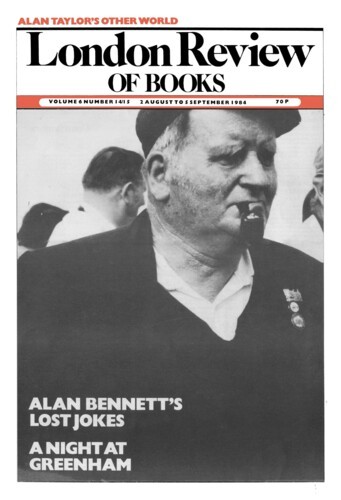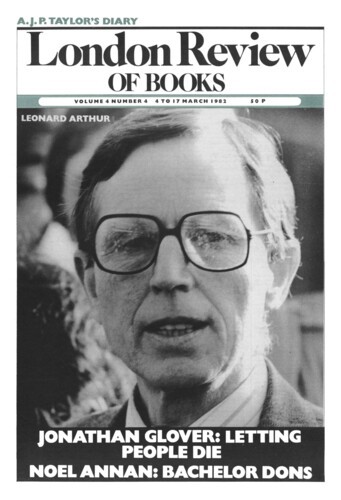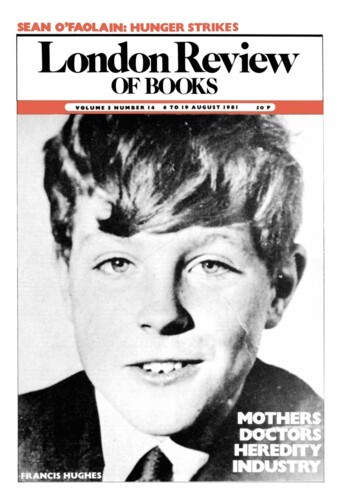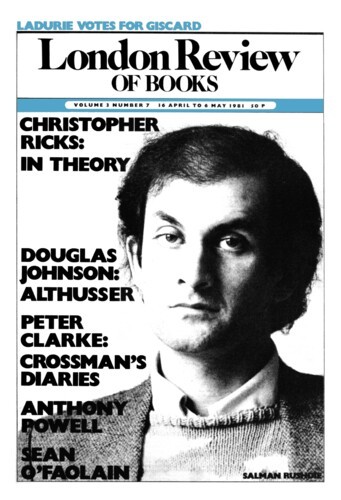Story: ‘Nora Barnacle: Pictor Ignotus’
Sean O’Faolain, 2 August 1984
When Doctor Johnson defined a club as ‘an assembly of good fellows meeting under certain conditions’ he did not mention the essential condition – that each member shall assume that every other member is a good fellow. In practice, of course, it is a law of club life the world over that, apart from very small clubs indeed, no member can know every other member even by sight.–




